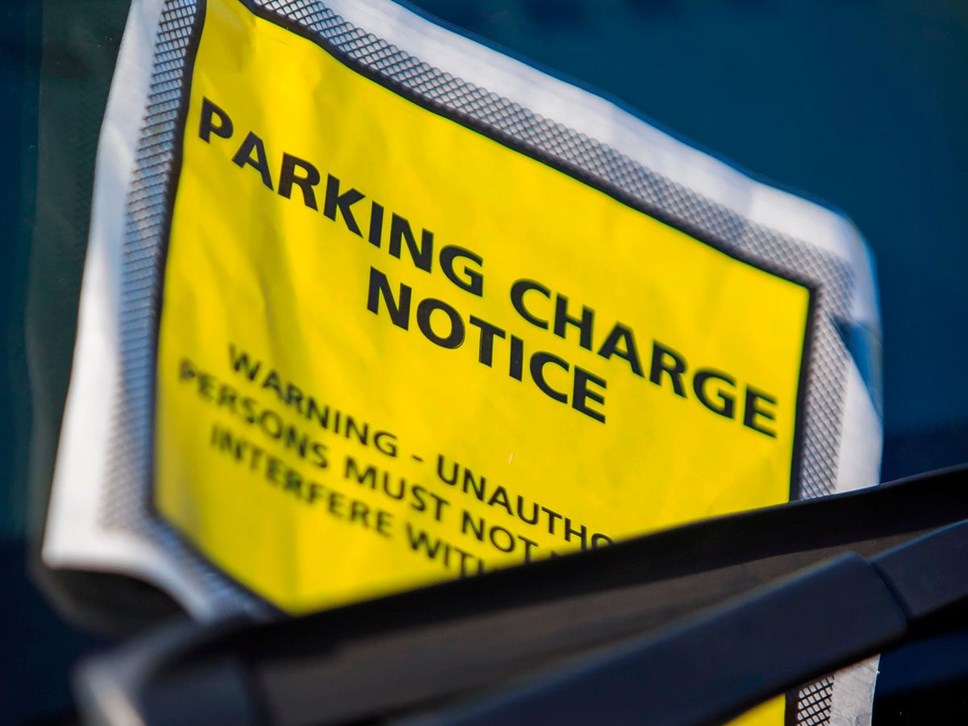
Monday Musing: Let’s talk about Parking Charge Notices
Top 5 questions asked by phone callers to the BPA
What is a ‘PCN’? Do I have to pay it? Is the company approved by an accredited body? We deal with many phone calls from motorists, who have proceeded to open their mail only to discover that they have received a Parking Charge Notice (PCN). Upon seeing the BPA logo, they may call our Operational Services team and we are usually their first point of contact. Below are the most frequently asked questions, the much-anticipated answers and some useful words of advice.
- Is this enforceable and do I have to pay?
When you enter a car park, you are entering a legally binding contract and by parking there, you are agreeing to abide by the terms and conditions. If a motorist has breached those terms, by say staying beyond their purchased time, a parking operator will have reasonable cause to request the registered keeper details of the vehicle from the DVLA and issue a PCN. Contrary to Penalty Charge Notices issued by a council, PCNs are not issued under statutory authority and should not be considered a ‘fine’. They are instead issued due to a breach of contract and are enforceable under contract law, potentially leading to County Court proceedings if they remain unpaid.
- I’ve been issued a Parking Charge by [operator name], can I check if they are approved by the BPA?
There are currently two Accredited Trade Associations (ATAs) in the private parking sector; The BPA and the International Parking Community (IPC). Private parking operators must be approved by an ATA if they wish to access vehicle keeper details from the DVLA. Members of our Approved Operator Scheme (AOS) are required to abide by our Code of Practice and the same goes for the IPC’s Accredited Operators with their respective Code of Practice.
You can find a list of our Approved Operators here and for a list of the IPC’s Accredited Operators click here.
- I’ve been issued a Parking Charge by the BPA; how do I appeal?
Important note – the BPA does not issue PCNs! Many of our members will use our logo on the top of their PCNs (we often get confused with ParkingEye) so it is easy for people to get confused.
Most people who call in want to question the validity of a notice and state their grounds for appeal. If you want to challenge a PCN, your appeal will need to be made in writing directly to the parking operator either online or by post.
Make sure you carefully read and follow the instructions on the notice if you are unsure how to appeal – if you send your appeal to the wrong email or postal address, it may not be sent to the incorrect department and therefore the appeal may not be registered. Once your appeal has been received the parking operators will need to acknowledge receipt within 14 days and respond within 35 days. Don’t worry about the charge escalating while you are awaiting an appeal response – as per our Code of Practice, operators must put the charge on hold during this time. If you appeal within the first discounted 14 days, the charge will be frozen at this rate and if your appeal is rejected, you will still be offered the discounted rate.
- Is there a prescribed time limit an operator must send out the PCN?
This is a very common question. This is dependent on whether an operator has decided to rely upon the Protection of Freedoms Act 2012 (POFA) or not, and if they are a member of ours. Schedule 4 of POFA 2012 creates the current legal basis to claim unpaid parking charges from vehicle keepers and hirers, should they not receive details of who was driving.
- POFA notices must be sent within 14 days from the date of the contravention.
- Non-POFA Notices must be sent within 7 months from the date of contravention. This is a Code of Practice requirement and only applies to BPA AOS members.
If the conditions of Schedule 4 of POFA are not met, this does not invalidate the parking charge, but means the operator cannot hold the registered keeper legally liable.
- I received a PCN, but I would like to know if I’m still within the grace period?
A grace period is put in place to allow drivers time upon entry and exit, to park, pay (if applicable) and to get back in the car and drive away. There is what we define as an entrance grace period and an exit grace period which I detail below:
- Entrance grace period: This is for when motorists enter a car park, read the signs and/or attempt to make payment then leave. In these instances, motorists must be offered a reasonable amount of time before an operator takes enforcement action, but we do not define this time, due to the variance in size and layout of car parks. An entrance grace period for a small, permit-only car park could be below 5 minutes, whereas for a large multi-story this could be 15.
- Exit grace period: This must be a minimum of 10 minutes and this is when a motorist intends to stay – for example, if you paid for an hour but spent a total of 1 hour 10 minutes on-site, you will not receive a PCN. It is important to note that the grace period is not a free period of parking however and should not be advertised as such.
While these are some of the most popular questions we get asked, they are by no means the only ones. If you still have questions which this piece does not answer please visit www.knowyourparkingrights.org.
